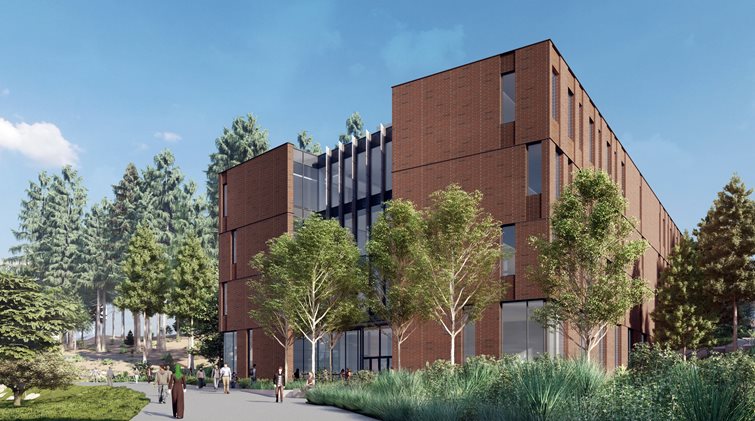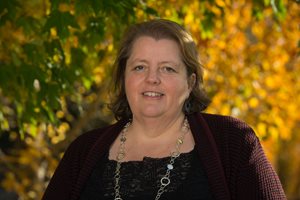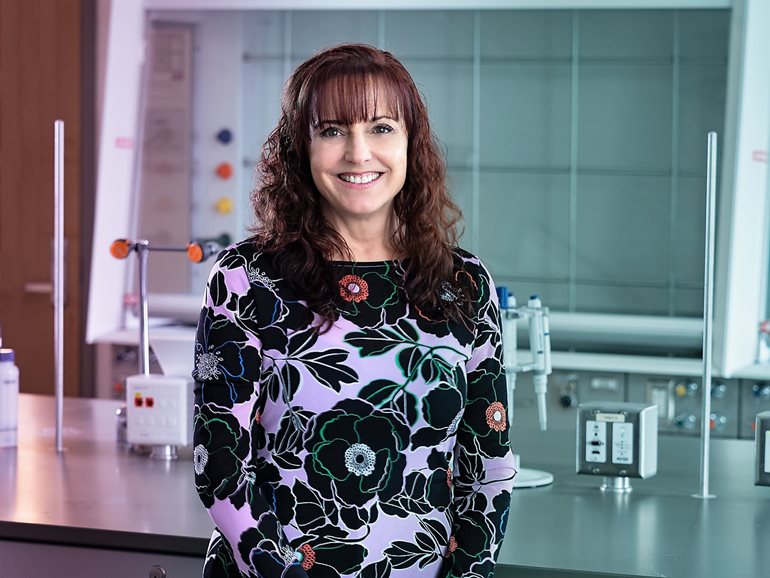
The final 2023-25 operating and capital budgets passed by the Washington House and Senate last month include $1.7 million in funding for the University of Washington Bothell’s School of STEM to develop a computer science program for students traditionally underrepresented in technology fields.
“The funding strategically supports a larger campus initiative to help students move into their chosen degrees, successfully graduate and access post-graduation goals,” said Dr. Cinnamon Hillyard, associate vice chancellor and dean for student success, who notes the program will be modeled after the UW’s Washington State Academic RedShirt program.
From support to achievement
The new UW Bothell program will include 75 pre-major students interested in studying computer science. The state funding provides $862,000 per fiscal year over the next two years to support faculty in math and computer science as well as several staff positions, such as a program director, a dedicated academic adviser and student success support staff.
Students in the cohort-based program will have opportunities to explore technology-related majors and career pathways starting their first year at UW Bothell, Hillyard said. They also will get assistance to help them succeed in key pre-requisite courses, such as introductory mathematics and computer science.

“Being in a cohort with shared curricular and co-curricular experiences will build community that supports students’ sense of purpose and belonging,” Hillyard said. “This is a key feature of the program as many populations traditionally underrepresented in technology often get discouraged and feel on the outskirts as they pursue those interests.
“We are working to ensure students can take classes together, engage in community-based learning together and share common residence hall spaces,” she said. “This will provide time and space for this community of students, faculty, staff, alumni and industry partners to have a chance to network and build on common goals.”
A jump-start to success
The UW’s STARS program is an intensive, residential “jump-start” program where students take supplemental courses in math and computer science over two years while receiving frequent check-ins from academic advisers. The faculty and staff support provided is greater than other, more traditional student programs — and the expectations of students are greater, as well.

“We really find that regardless of the backgrounds that students come from, if we provide them with the right toolkit of support and set high expectations, they rise to that,” said Dr. Leslie Cornick, dean of the School of STEM.
“The aptitude is there. The passion is there. The talent is there. We just need to provide them with what they need to succeed and reach their potential,” she said. “That’s really what the STARS program is all about. It’s a cohort-based model so students really develop community with each other. They learn to support each other.”
Cornick touted the program’s success in improving both retention and graduation rates for students traditionally underrepresented in STEM, particularly engineering. After attending a workshop on the program at the Seattle campus last year, Cornick began to think about how a similar program could be implemented on the UW Bothell campus.
Need for a new model
“It became clear to me during the workshop that it was really a perfect model for our campus,” Cornick said. “The students we serve here really represent that diversity we need in the workforce in engineering and technical specialties, and in computer science.”
The UW Bothell campus serves a wide array of students, including those who are the first in their families to pursue a four-year degree, are veterans or from military families, are working adults supporting families, or are from underserved K-12 neighborhoods and schools, Cornick said.
“The mix of students we have coming into UW Bothell who are interested in being a STEM major is a very diverse, and they don’t necessarily come with everything you traditionally think about as making them ready to jump right into a STEM major.”
Often, such degrees take five years to complete for students who don’t come “calculus-ready,” Cornick said. Students who need to fulfill a lot of prerequisites may not get to take an engineering or computer science class in their first year or even in their second year.
“Many students, by that time, are frustrated, disillusioned and have lost their passion,” Cornick said. “The attrition rates in that model are so much higher, and our faculty may never even have the opportunity to know about half of these students because they get so discouraged by what they have to do before they can even apply to the major.”
A holistic learning approach
The goal of the new UW Bothell program, Cornick said, is to provide a more holistic approach by offering math and introductory courses simultaneously. This allows students to connect with their senior peers and faculty — and get a sense for what to expect in their junior and senior years.
“What we’re planning to do is start with the STARS model, tailor it to our students and then set up that same kind of residential, cohort-based program,” Cornick said. “I’m excited about what the proviso money is going to allow us to do.
“I am so thrilled this funding will be provided on an ongoing basis so we can really establish this program and have it succeed.”
Funding for the program begins in July at the start of the UW’s next fiscal year. This summer, a working group of faculty and staff will study the Seattle program as they consider what aspects of that program to use and what distinct needs of UW Bothell students should be addressed with the new program.
Part of a dynamic campus
The timing of this new program couldn’t be better, Cornick added, as on-campus housing is set to triple in the next two years and as the campus prepares to open the doors next academic year to Innovation Hall, a building that will be dedicated to STEM education and shared with Cascadia College.
In addition to legislative funding for the new student program, UW Bothell will get a portion of the $8.5 million awarded to the UW for maintenance and operations for use with Innovation Hall.
The $63-million building, which will be the first to house faculty and academic programs from both institutions on the shared campus, will include 21,500 square feet of program space each for UW Bothell and Cascadia, with an additional 5,000 square feet of shared space.
“We are excited for this work on the new program to begin,” Hillyard said. “We believe that the new infrastructure, curricular improvements and community events will not only deeply impact the students in the program but will also provide benefits to our larger student population.”



